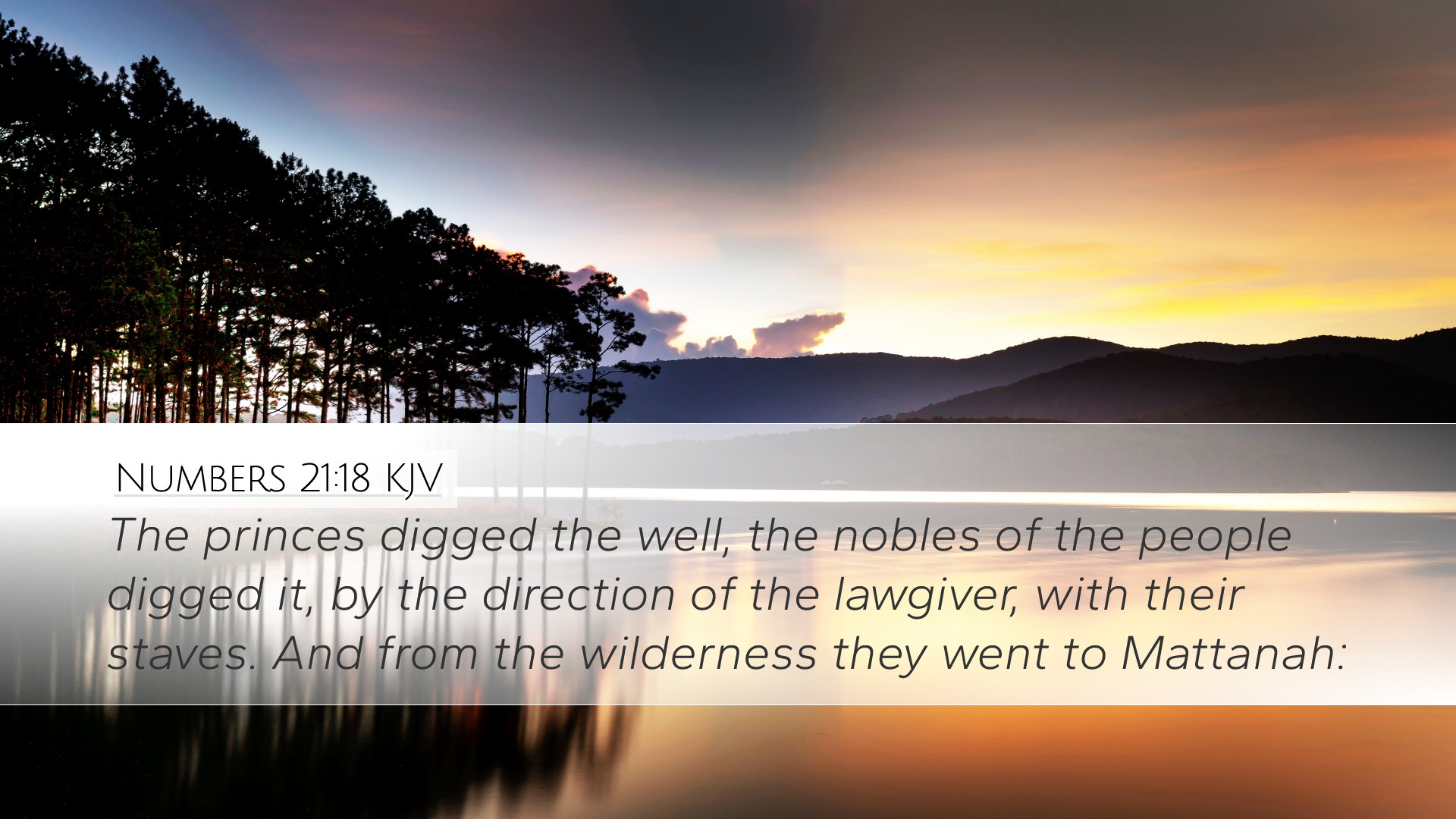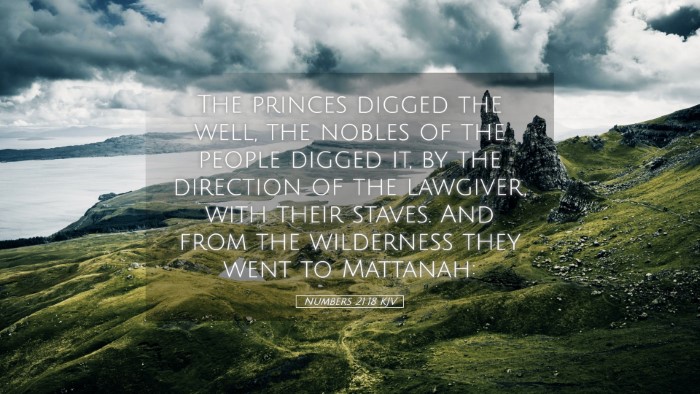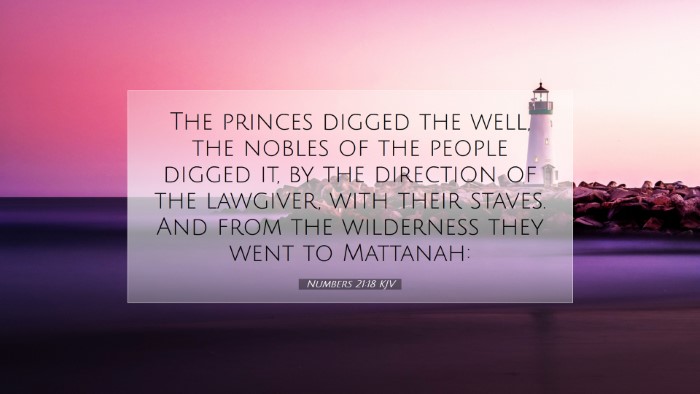Commentary on Numbers 21:18
Verse Text: "The well, which the leaders sank, which the nobles of the people dug with the scepter and with their staves." (Numbers 21:18, NKJV)
Introduction
This verse, part of the Israelites' journey through the wilderness, reflects a moment of community effort and divine provision. It illustrates important themes of leadership, communal effort, and reliance on God throughout the trials of life.
General Interpretation
Numbers 21:18 highlights a moment of collaboration among the leaders of Israel as they provide for their needs in the desert. It emphasizes the significance of a well, not just as a physical necessity, but as a spiritual metaphor for living water, which is central to God’s provision.
Insights from Matthew Henry's Commentary
Matthew Henry emphasizes the importance of unity and leadership in the context of this passage. He suggests that the leaders' action in digging a well symbolizes a proactive approach to problems faced by the community:
- Leadership: Henry notes that effective leadership is marked by initiative. The nobles didn't wait for water to appear; they took action, signifying that true leaders address needs through diligent work.
- Community Effort: The verse illustrates a collective effort among the nobles which reflects how community can come together during times of need.
- Divine Provision: Ultimately, the well represents God’s provision. It is not merely a secular or physical source of water, but also serves as a reminder of spiritual sustenance provided by God.
Insights from Albert Barnes' Commentary
Albert Barnes provides additional context to understand the historical and theological significance of the well:
- Historical Context: Barnes highlights that this well is a marker of Israel's journey and relation to the land promised to them by God. It underscores the struggles faced during their exodus.
- Symbol of Spiritual Nourishment: He connects the physical watering with spiritual concepts, drawing parallels to how access to living water is representative of Christ's offering to believers.
- Prayer and Supplication: Barnes notes that the act of digging the well may have been accompanied by prayer, emphasizing the necessity of divine guidance in human endeavors.
Insights from Adam Clarke's Commentary
Adam Clarke’s exposition on this verse explores the significance of the well in relation to Israel's needs:
- Manufactured Necessity: Clarke points out that the leaders acted out of urgency to create a water source to prevent thirst among the people—an effort that signifies thoughtful leadership.
- Spiritual Reflection: He expounds on the well as a metaphor for Christ, interpreting that just as water sustains life, so does Christ sustain the believer's spiritual vitality.
Theological Reflections
This verse offers profound theological insights about God’s provision amid human effort:
- God’s Faithfulness: The well exemplifies God's attentive care for His people. Despite their rebellion and their struggles, God continues to provide for them, a testament to His unwavering covenant.
- Community and Leadership Role: It highlights that while God provides, the community also has responsibility—leaders must actively seek solutions and rally their people during hardships.
- Spiritual Leadership: There is also a reflection on the nature of spiritual leadership; it involves not only guiding others but also recognizing the ultimate source of sustenance in God.
Application for Today’s Believers
For pastors, students, theologians, and Bible scholars, this verse encourages several practical applications:
- Taking Initiative: Leaders in the church should take proactive steps to address the needs of their community, just as the nobles took action to dig the well.
- Community Engagement: Encourage collective engagement in ministries, fostering an environment where everyone contributes to the welfare of the community.
- Trusting in Divine Provision: This passage reinforces the faith that although the journey may be arduous, God consistently provides what His people need—both physically and spiritually.
- Spiritual Nourishment: Reflect upon and promote the essential need for spiritual sustenance in Christ as the source of living water.
Conclusion
Numbers 21:18 serves as a powerful reminder of God’s faithfulness and the vital role of human agency in the process of divine provision. As leaders and members of the faith community, understanding the balance of cooperation with God’s providence is essential for growth and sustenance in spiritual endeavors.


